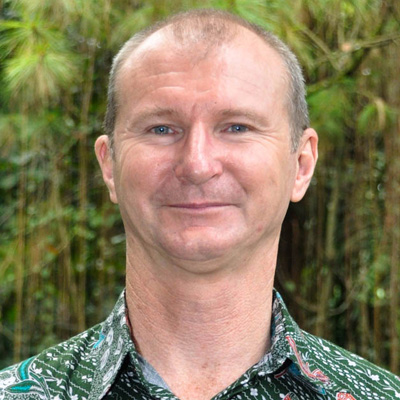
South Korea is specifically targeting climate change mitigation in its development assistance projects abroad to help achieve carbon neutrality and implement its Green New Deal within the sector, according to participants at a recent symposium in Seoul on peatland restoration.
This year, South Korea – officially known as the Republic of Korea – issued its Comprehensive Action Plan for International Development Cooperation with a special focus on curbing climate change and securing reductions in greenhouse gas emissions.
The government’s aim is to help achieve the objectives of its strategic Green New Deal Official Development Assistance (Green ODA) to strengthen climate action and promote a low-carbon economy.
“The Action Plan clearly states that cooperative projects in developing countries must actively support climate-change mitigation, such as reducing greenhouse-gas emissions and achieving carbon neutrality, through knowledge exchange, technology transfer and capacity strengthening,” said Eunho Choi, a research scientist at the National Institute of Forest Science (NIFoS), at the 2nd International Symposium on Community-based Peatland Restoration for Climate Change Mitigation and Livelihoods’ Goals, held on 22 June 2023 in Seoul.
Eunho Choi is also joint leader of a development assistance project on The Sustainable Community-based Reforestation and Enterprises (SCORE) with the Center for International Forestry Research and World Agroforestry (CIFOR-ICRAF).
As part of wider efforts to restore 14 million hectares of degraded land, including 2 million hectares of peatlands – the South Korean and Indonesian governments have been cooperating on peatland restoration by focusing on the ‘3Rs’: rewetting (infrastructure), revegetation (with tree planting), and revitalization (of land around villages).
NIFoS and CIFOR-ICRAF are developing a model for restoring peatlands and other degraded lands in Indonesia in ways that make the most of science and technology and improve local livelihoods.
“This work is extremely important,” said Himlal Baral, senior forest and landscape restoration scientist with CIFOR-ICRAF’s Climate Change, Energy and Low Carbon Development team. “Indonesia holds approximately 47% of all peatland on Earth — nearly 150,00 km2 — which sequesters 60 gigatonnes of carbon dioxide. But nearly half of Indonesia’s peatland is degraded owing to clearing by logging and fire, as well as drainage of peat water to allow agriculture and plantations of non-peatswamp plants.”
South Korean institutions have been actively restoring Indonesian peatlands over the past decade, according to Park Chongho, executive director of the Asian Forest Cooperation Organization (AFoCO), an intergovernmental body based in Seoul.
Since 2019, the Korea Forest Service has been implementing a restoration project targeting 200 hectares of peatland — equivalent in size to about 280 football fields — in Jambi Province.
Meanwhile, AFoCO has been restoring peatlands with local communities in Central Kalimantan since 2016. It is also developing a 10-year Climate Action Plan with three strategic programmes for restoration of forests – including peatlands – through community solutions and digital innovations, according to Chongho.
“We ask for the continued support and interest in the forest sector and peatland from all representatives of missions and other participants here today,” Park said. “We expect that the joint research presented will be a model for peatland restoration in response to climate change.”
Eunho and Baral provided an example of Green ODA in their presentation on their NIFoS-funded project in South Sumatra Province.
project aims to enable the long-term mitigation of greenhouse-gas emissions from peatland through the deployment of climate-smart agroforestry approaches. These increase carbon sinks, enhance biodiversity and improve ecosystem services while also enhancing local livelihoods by developing markets for sustainable agri-food (including fish) products, essential oils and biomass.
The restoration of a 10-hectare demonstration plot with 11 farmers is under way using a so-called agro-silvo-fishery approach. The project eliminates fire-based land clearing and uses adapted varieties of rice with greater yields, oil-bearing and fruit trees, seasonal crops and fishponds with native species adapted to the high pH of the rewetted peat. Results have been so impressive that plans are already in train to expand the model to greater numbers of farmers and hectarage.

“Aware of the Government of Indonesia’s priority to restore over 2 million hectares of degraded peatland by 2030 under their nationally determined contribution to the United Nations Framework Convention on Climate Change, the research team wanted to create a model that was sustainable, providing benefits for the planet, the nation and local communities,” Baral said. “We found that the most important aspect of peatland restoration was that it had to be conducted with the people living on the peatland.”
Eunho agreed, adding that the team’s findings contribute to Green ODA by demonstrating that a “win-win green recovery” was possible that addressed climate change in developing countries.
“When we engage in international development cooperation that considers mutual prosperity, the forest sector can be a good solution,” she said.
The SCORE project aims to identify, and scale up, locally appropriate restoration models based on various types of degraded land in Indonesia.
For more information, please contact Himlal Baral (h.baral@cifor-icraf.org) or Eunho Choi (ehchoi710@korea.kr)
We want you to share Forests News content, which is licensed under Creative Commons Attribution-NonCommercial-ShareAlike 4.0 International (CC BY-NC-SA 4.0). This means you are free to redistribute our material for non-commercial purposes. All we ask is that you give Forests News appropriate credit and link to the original Forests News content, indicate if changes were made, and distribute your contributions under the same Creative Commons license. You must notify Forests News if you repost, reprint or reuse our materials by contacting forestsnews@cifor-icraf.org.












